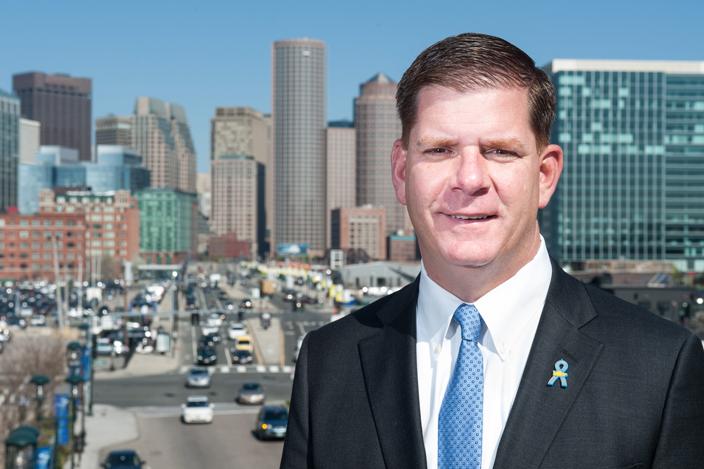|
Mayor Martin J. Walsh filed an ordinance establishing minimum
safety standards for shared mobility businesses, such as e-scooter companies,
and authorizing the Boston Transportation Department (BTD) to pilot and
license shared mobility companies that want to do business in Boston. “Our streets and sidewalks are public resources, and we want to ensure that mobility options in our city are safe, reliable, and equitable,” said Mayor Walsh. “We’re committed to creating a strong transportation network by investing in both short and long-term projects that will create greater transportation access for all users of our city’s streets. This ordinance will help create a stronger, safer transportation network across Boston.” The proposed ordinance would require shared mobility businesses, such as e-scooter companies, to have a license from the Boston Transportation Department in order to operate in the City. The ordinance establishes minimum requirements for licensure, such as prohibiting blockage of curb ramps, and authorizes the Department to set standards for data-sharing and distribution of vehicles. An Advisory Committee, comprised of representatives from the Disabilities Commission, the Environment Department, and the Mayor’s Office of New Urban Mechanics, will help inform regulations and policies as the industry evolves. “Over the last few years we have seen new mobility devices and businesses emerge in cities around the country giving more people ways to access what they need without a car,” said Gina N. Fiandaca, Boston Transportation Commissioner. “The ordinance provides basic safety rules while also empowering our Transportation team to act nimbly to keep pace with a fast-moving industry. Our goal is for us to be ready for the next wave of innovation that hits our streets, and, in accordance with Go Boston 2030, to ensure safe and accessible roads for all users.” The proposed ordinance would go into effect 90 days after passage and will complement the legislation filed by Representatives Moran and Hunt which will regulate these transportation options throughout the Commonwealth. This initiative is a collaboration between the Boston Transportation Department and the Mayor’s Office of New Urban Mechanics. This ordinance strengthens the Walsh Administration’s work to efficiently support residents by providing investment in transportation infrastructure, reducing carbon emissions from motor vehicles, and providing for safer streets. In addition, in January, Mayor Walsh proposed four bills at the Massachusetts State House, furthering goals established in Go Boston 2030, the City of Boston’s comprehensive transportation plan. Execution of the plan is well underway with action being taken on more than half of the 58 projects and policies identified. These initiatives work to reduce congestion, encourage travel by transit, bike and on foot, and ensure safety and access equitably for all users of Boston’s streets. Examples of the Mayor’s work include partnering with the MBTA to promote the use of public transit by establishing a dedicated bus lane on a section of Washington Street in Roslindale that serves eight different bus lines carrying thousands of passengers daily; incorporating new techniques and upgraded equipment into roadway projects to advance our Vision Zero goal of eliminating traffic fatalities and severe injuries in Boston by 2030; and working to build a network of low stress, strategically placed, separated or buffered bike lanes to allow for safe travel by bike throughout Downtown. |












